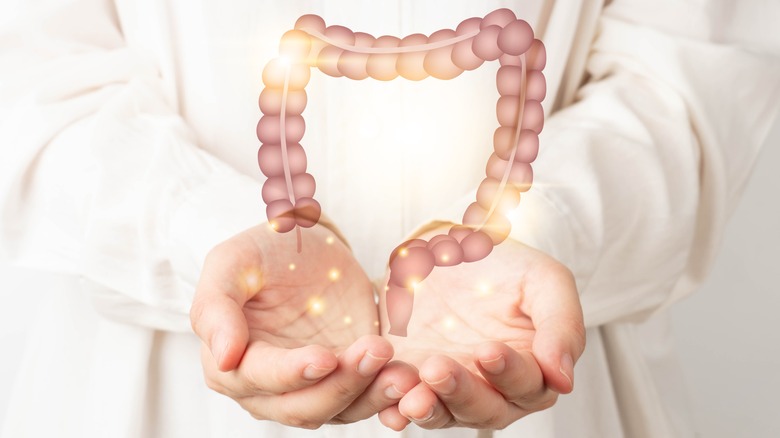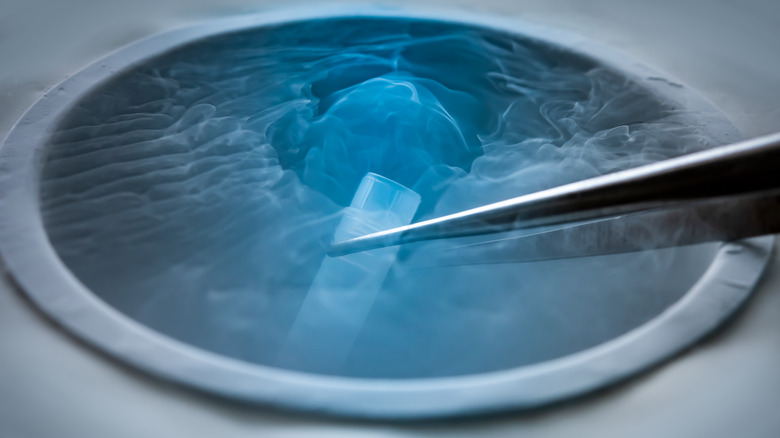The Unexpected Way Researchers Say You Can Improve Gut Health Later In Life
Our gut microbiome is a diverse cocktail of roughly 100 trillion different bacteria, fungi, viruses, and single-celled organisms (via NBC News). Maintaining our gut health is crucial. Without a balanced gut microbiome, individuals may be at an increased risk for asthma, heart disease, type 2 diabetes, irritable bowel syndrome (IBS), colorectal cancer, and more, according to new research published in Trends in Molecular Medicine. The researchers went on to discuss a procedure that may have the potential to restore gut health as we age. Here's the inside scoop — so to speak.
Autologous fecal microbiota transplantation (FMT) is a procedure in which a patient's own stool is collected at a young age, preserved, and reintroduced into their gastrointestinal tract later in life through oral capsules, an enema, or colonoscopy procedure, as outlined in the research paper. Some experts believe FMT has the potential to help treat certain health conditions, such as recurrent C. difficile infection (rCDI). This can cause symptoms such as fever, cramping, and diarrhea (per Johns Hopkins Medicine). Clinical trials have shown fecal microbiota transplantation (FMT) to be as much as 94% effective at curing patients with rCDI by restoring their gut microbiome balance, as noted in the research paper.
Preservation of donor stool versus personal stool samples
This is not the first time fecal microbiota transplantation (FMT) has been explored as a potential treatment option for various health issues. According to a 2020 study published in Medicine, FMT procedures involving donor stool may help in treating symptoms of Parkinson's disease. However, using one's own stool sample rather than a donated sample may help address challenges faced by patients when seeking a donor match. As written in the new research, " ... considering the highly personalized gut microbial compositions and the donor-recipient compatibility issue, creating a personal microbial Noah's ark using stool banks for future personal use might also be a worthwhile option."
While more research is still needed, researchers from the study suggest that successful long-term storage of stool samples will require cryopreservation temperatures below -137 degrees Celsius. In addition to preservation, stool banks are also responsible for meticulous donor recruitment and screening, sample preparation, and monitoring of any potential patient safety issues (via Frontiers in Cellular and Infection Microbiology). The study team cautions, however, that not all stool banks accept personal samples. Therefore, if you're interested in storing your poop to potentially enhance your future gut health, you'll want to do some research beforehand to determine which organizations only accept donor samples and which ones store personal samples.


